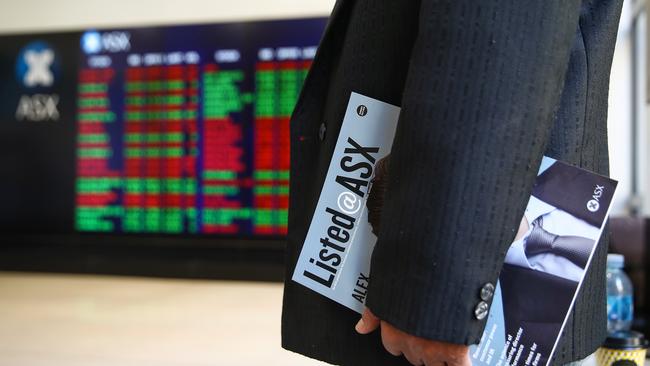
Growing concerns about liquidity on the Australia and New Zealand stock exchanges have prompted top industry operators to lobby governments for a combined trans-Tasman share trading index.
The Australian can reveal that one of the most prolific investment banks for trans-Tasman deals, Jarden, plans to put forward a proposal for a new index to attract more global capital to the Australia and New Zealand equities markets, in a move likely to be on its agenda for 2025.
Jarden co-chief executive Sarah Rennie, an equities capital markets expert, believes one solution to liquidity issues on both the Australian Securities Exchange and New Zealand Stock Exchange is a new index beneficial to both markets.
Liquidity on the NZX had been shrinking as New Zealand investors allocate a greater proportion of funds to offshore markets and fewer companies list on the NZX.
“Lack of liquidity can become a real deterrent for investment, particularly for the large global funds who want to put significant dollars to work,” she said.

Passive index money was an increasingly important factor driving liquidity and share prices, and the ASX was attracting materially more of this index capital, she said.
“It is natural for New Zealand companies to be attracted to the greater liquidity and pools of capital available on the ASX,” she said.
“A number of NZ companies are dual-listed or seeking a dual listing and actively seeking to build their ASX registers whilst maintaining their strong NZ registers.”
Creating a combined Australia and New Zealand index could stop the drift to the ASX and allow New Zealand companies to access the deeper index pools of capital from their home market.
“If an ANZ index became the primary benchmark for the region, New Zealand stocks in that index will attract a lot more focus and capital from Australian and international investors,” she said.
“New Zealand stocks with a meaningful position in the ANZ index will become difficult to ignore.”
Shrinking pools of capital have been a growing concern for listed markets globally, with the rise of private investment by superannuation funds and private equity, and Australia is no exception.
ASX data shows that 128 companies were delisted from the stock exchange in 2024, and there were only 58 new listings.
In 2023, there were 146 delistings and 45 new listings.
The trend is a reversal from 2021 and 2022, when the number of new listings outpaced the number of companies leaving the ASX.
The trend is similar in New Zealand.

Compounding the problem has been New Zealand companies bypassing the NZX altogether and listing on the ASX.
The New Zealand government is understood to be concerned about the level of liquidity on its own stock exchange.
New Zealand has lost Ampol, which had a listing there after it purchased New Zealand listed fuel retailer Z Energy; retirement village operator Arvida Group; Pushpay; and New Zealand Oil and Gas, which opted for a sole listing on the ASX.
Among the high-profile companies that have disappeared from the Australian Securities Exchange this year through buyouts are Alumina, Silver Lake Resources, building materials providers AdBri, Boral and CSR, and Qantm, PSC Insurance and Namoi Cotton.
But there have only been three major IPOs this year to replenish the bourse: DigiCo Infrastructure REIT, Guzman y Gomez and Cuscal.
An example of a company that could benefit from a new index is the dual-listed, New Zealand-based healthcare company EBOS.
It is in the New Zealand top 50 with a $7bn market value, but not in the ASX 200, because most investors owned the shares on the New Zealand market.
Having it on one index would push it up the rankings.
It would then attract more capital because passive funds would need to own the stock, and more offshore investors would pile in because its market value would pass the threshold of being of adequate scale.
“Global investors really think of Australia and New Zealand as one market opportunity,” Ms Rennie said. “Any global portfolio manager looking at New Zealand is almost certainly also looking at Australia.”
The key indices in Australia and New Zealand are managed by the securities index company S&P.
S&P would need to be on board to change the indices, and so far, Jarden has not taken the proposal to the New Zealand government, S&P or advanced the proposal in Australia.
While some have raised the prospect of merging the ASX and NZX in the past, New Zealanders are seen as being protective of their own stock exchange and a move to merge with the Australian market would not be well received.
Yet an ANZ250 index would be one way around the liquidity problem while still protecting New Zealand’s market independence.






To join the conversation, please log in. Don't have an account? Register
Join the conversation, you are commenting as Logout